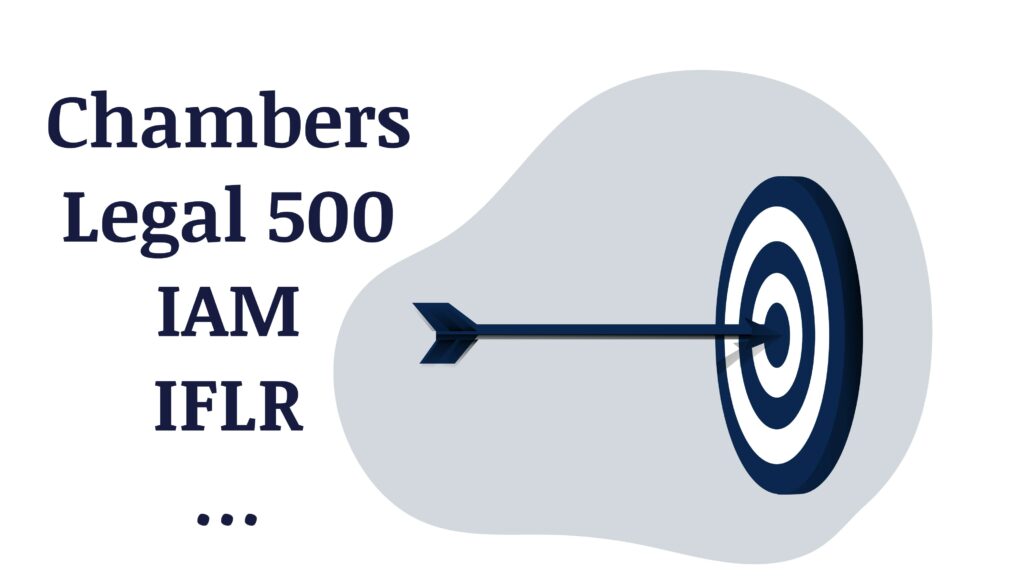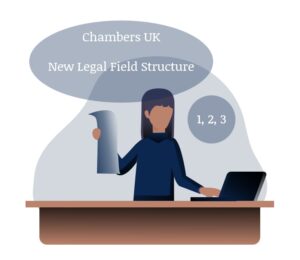Best Lawyers will start collecting submissions and matters. After WWL Who's Who Legal, this is now the second major reference ranking to change its research methodology fundamentally.
The new methodology corresponds to that of Chambers & Co.
We already reported last September on the change in the search methodology at Who’s Who Legal reports: WWL Who’s Who Legal is currently collecting matters! Changes in research methodology indicate that the pure reference method has little future viability. | Law Business
For all those familiar with Law Firm Directories, this was a huge surprise at the time. After all, the research methodology of a publication is the core of its existence.
Now, a very interesting mail from Best Lawyers has been doing the rounds for about a week. It announces that Best Lawyers will change its research methodology. Best Lawyers speaks here on its own website of an “Expanded Methodology”:
The new search methodology corresponds to that of Chambers, Legal 500, IFLR, JUVE, IFLR, IAM, MIP, and others. In contrast to Best Lawyers, these publications always also research Mattern – i.e., law firm cases.
Until now, Best Lawyers has been a pure reference ranking. Here, any person (references) could simply vote online for a law firm and for lawyers. And without having to substantiate the decision with law firm matters.
Such a method therefore requires significantly less effort from the publications. However, it is also significantly less informative. This then is simply the private opinion of people who are rarely neutral towards the law firm they are evaluating.
In Mattern’s research, however, the employees of the rankings — the researchers — evaluate based on matter analyses the law firms. These researchers are neutral towards the law firms. They also get a dramatically better insight than the references, who at best can only describe their own experience.
So where will Best Lawyers find the many hard-working researchers to tackle the extensive tasks? After all, rankings such as Chambers collect up to 20 matters per (!) legal field. You can even submit as many as you like to JUVE (although we do not recommend this).
Well, this is where the second variable in the equation comes into play. After all, Chambers was acquired last November for 400 million pounds by the US investment group Abry Partners. We have reported on this here: Chambers and Partners sold again | Law Business.
But Abry Partners is also the owner of, surprise, surprise, Best Lawyers! So what does Abry Partners achieve by taking this step? After all, with Chambers, the company has by far the better-known ranking already. So why compete internally?
Well, here we come back to the development of Who’s Who Legal. There is no further research ranking in the Group. The changeover therefore appears to be the result of the significantly higher acceptance of research rankings in the market.
This would then also speak in favor of the changeover at Best Lawyers. The realization that pure voting rankings simply enjoy less and less value in the market is also penetrating here. So strong, in fact, that they are ready, to build up competition in-house to build up competition.
In the end, Chambers and Best Lawyers will probably both research matters, but the criteria for the law firm ratings will most likely not be identical. I am definitely curious to see what the research process at Best Lawyers will look like in the end. Best Lawyers announced that on 11.4. a “Submission Packet” will be delivered to law firms.
In brief:
What does this development mean for law firms and the legal sector?
1. Further decline of pure reference rankings
Reference rankings are clearly less meaningful than rankings that collect matters (law firm cases).
After Who’s Who Legal (WWL), Best Lawyers is the second prominent ranking to change its research methodology.
2. Comprehensive research method validated
Now that WWL has started to move from a pure reference ranking like Best Lawyers to a comprehensive research ranking like Chambers, it seems that the owners of Best Lawyers want to move to a comprehensive research approach as well. This approach involves not only asking references, but also researching the law firms’ matters.
This is a clear confirmation of the much more solid research method.
3. Will Best Lawyers and Chambers now become a single ranking?
The two publications will probably continue to exist side by side. Although both rankings have the same owner, a multi-brand strategy makes sense here.
Finally, Best Lawyers now also has the research capabilities and capacities of Chambers. It remains to be seen to what extent the already overburdened researchers can cope with this.
4. Does it still make sense to file with both Best Lawyers and Chambers?
This depends on the final research method of Best Lawyers. Although the research methodology will in principle be the same, there will probably be major changes in the details – primarily in the presentation of the results.
About the author: Law Business has been supporting lawyers and patent attorneys since 2004. Our customers regularly describe us as the market leader.
Our submission support for law firms and patent attorneys
- DLA PIPER: "...can highly recommend the Law Business team."
- FRESHFIELDS: "...know the subject matter very well...have impressed our equity partners."
- TAYLOR WESSING: "...have excellent knowledge of the legal market ."










